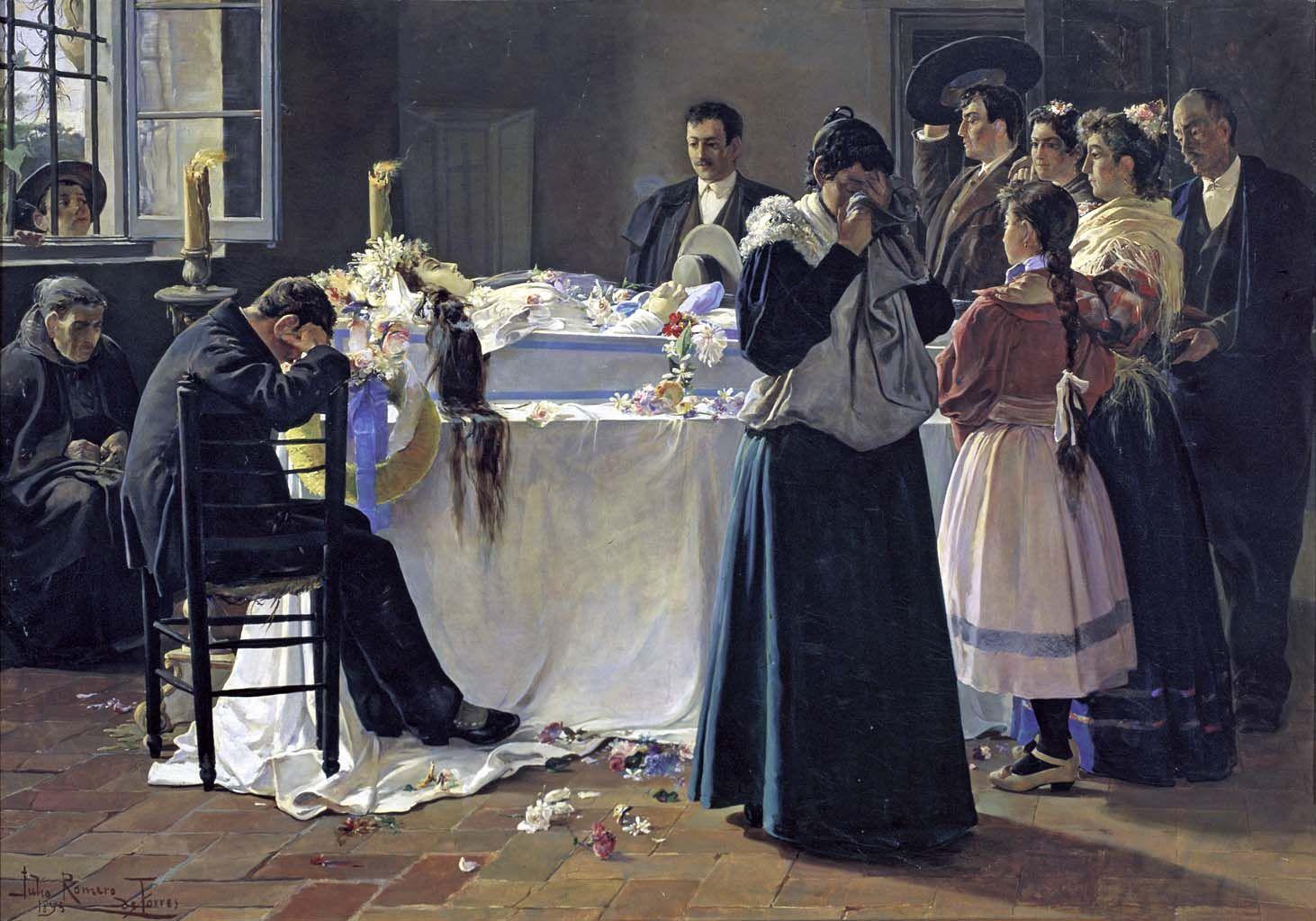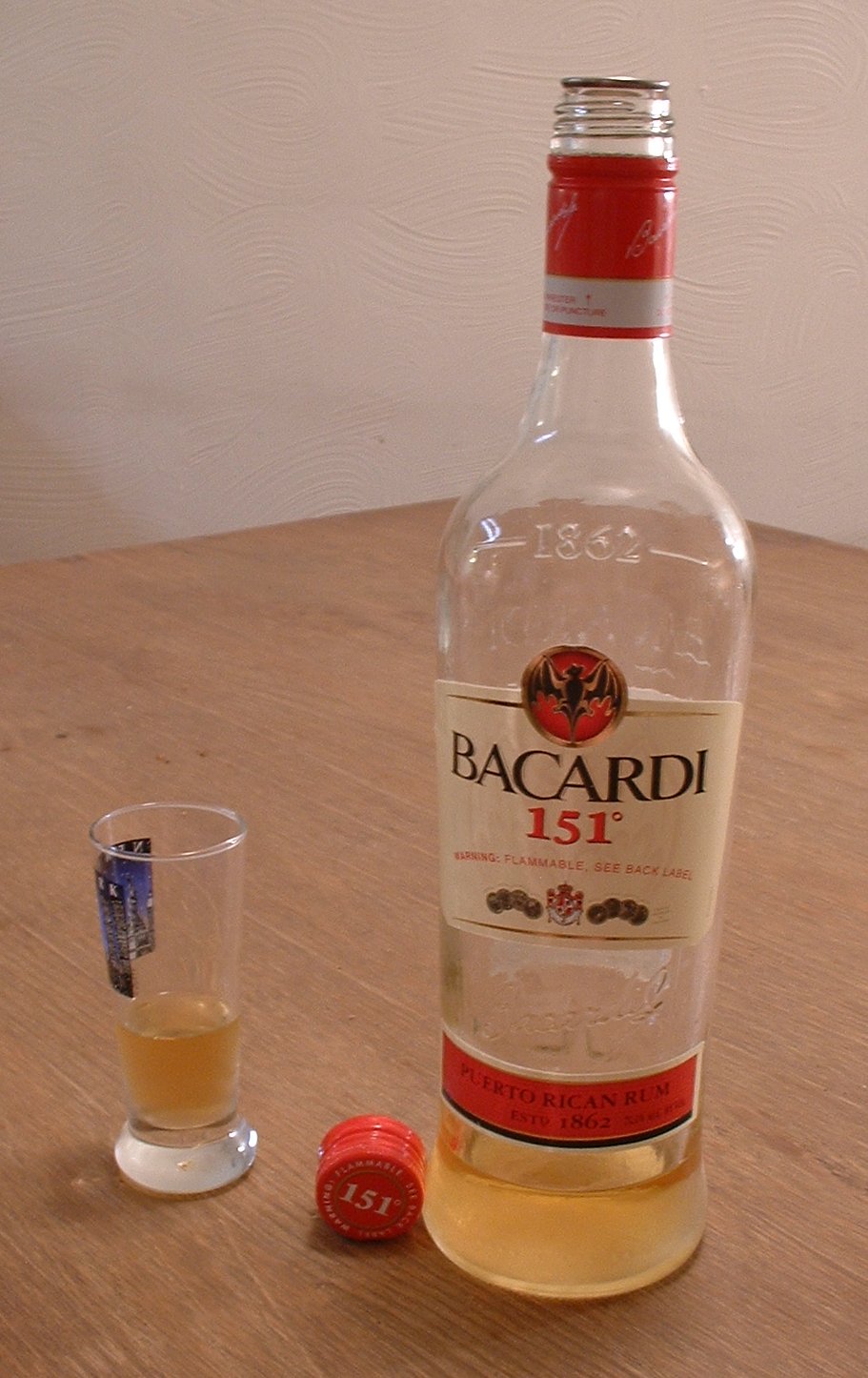|
Nine Nights
Nine-Nights, also known as Dead Yard, is a funerary tradition practiced in the Caribbean (primarily Belize, Antigua, Grenada, Dominica, Dominican Republic, Jamaica, Guyana, Trinidad and Haiti). It is an extended wake that lasts for several days, with roots in African religious tradition. During this time, friends and family come together to the home of the deceased. They share their condolences and memories while singing hymns and eating food together. In the old days, the nights were calm and reserved for the most part - but that tradition has changed with the times. Today, these gatherings resemble parties much more than they resemble wakes (though this is not true for all “nine-nights”). Traditions Nine-Nights are no longer a time to mourn, but a time to celebrate since the loved one is no longer suffering in life. When friends come they do not come with just condolences, instead they come with food, drink and music; this is after all a celebration. True to its name this ... [...More Info...] [...Related Items...] OR: [Wikipedia] [Google] [Baidu] |
Funeral
A funeral is a ceremony connected with the final disposition of a corpse, such as a burial or cremation, with the attendant observances. Funerary customs comprise the complex of beliefs and practices used by a culture to remember and respect the dead, from interment, to various monuments, prayers, and rituals undertaken in their honor. Customs vary between cultures and religious groups. Funerals have both normative and legal components. Common secular motivations for funerals include mourning the deceased, celebrating their life, and offering support and sympathy to the bereaved; additionally, funerals may have religious aspects that are intended to help the soul of the deceased reach the afterlife, resurrection or reincarnation. The funeral usually includes a ritual through which the corpse receives a final disposition. Depending on culture and religion, these can involve either the destruction of the body (for example, by cremation or sky burial) or its preservat ... [...More Info...] [...Related Items...] OR: [Wikipedia] [Google] [Baidu] |
Wake (ceremony)
A wake is a social gathering associated with death, held before or after a funeral. Traditionally, a wake involves family and friends keeping watch over the body of the dead person, usually in the home of the deceased. Some wakes are held at a funeral home or another convenient location. The wake or the viewing of the body is a part of death rituals in many cultures. It allows one last interaction with the dead, providing a time for the living to express their thoughts and feelings with the deceased. It highlights the idea that the loss is borne by the whole community and is a way of honoring the deceased member. The emotional tone of a wake is sometimes seen as more positive than a funeral due to the socially supportive atmosphere and the focus on the life rather than the death of the deceased. __NOTOC__ Origin The term originally referred to a late-night prayer vigil but is now mostly used for the social interactions accompanying a funeral. While the modern usage of the ... [...More Info...] [...Related Items...] OR: [Wikipedia] [Google] [Baidu] |
Africa
Africa is the world's second-largest and second-most populous continent, after Asia in both cases. At about 30.3 million km2 (11.7 million square miles) including adjacent islands, it covers 6% of Earth's total surface area and 20% of its land area.Sayre, April Pulley (1999), ''Africa'', Twenty-First Century Books. . With billion people as of , it accounts for about of the world's human population. Africa's population is the youngest amongst all the continents; the median age in 2012 was 19.7, when the worldwide median age was 30.4. Despite a wide range of natural resources, Africa is the least wealthy continent per capita and second-least wealthy by total wealth, behind Oceania. Scholars have attributed this to different factors including geography, climate, tribalism, Scramble for Africa, colonialism, the Cold War, neocolonialism, lack of democracy, and corruption. Despite this low concentration of wealth, recent economic expansion and the large and young ... [...More Info...] [...Related Items...] OR: [Wikipedia] [Google] [Baidu] |
Dominoes
Dominoes is a family of tile-based games played with gaming pieces, commonly known as dominoes. Each domino is a rectangular tile, usually with a line dividing its face into two square ''ends''. Each end is marked with a number of spots (also called ''Pip (counting), pips'' or ''dots'') or is blank. The backs of the tiles in a set are indistinguishable, either blank or having some common design. The gaming pieces make up a domino set, sometimes called a ''deck'' or ''pack''. The traditional European domino set consists of 28 tiles, also known as pieces, bones, rocks, stones, men, cards or just dominoes, featuring all combinations of spot counts between zero and six. A domino set is a generic gaming device, similar to playing cards or dice, in that a variety of games can be played with a set. Another form of entertainment using domino pieces is the practice of Domino toppling, domino toppling. The earliest mention of dominoes is from Song dynasty China found in the text ''Former ... [...More Info...] [...Related Items...] OR: [Wikipedia] [Google] [Baidu] |
Proof (alcohol)
Alcohol proof (usually termed simply "proof" in relation to a beverage) is a measure of the content of ethanol (alcohol) in an alcoholic beverage. The term was originally used in England and was equal to about 1.8 times the percentage of alcohol by volume (ABV). The UK now uses ABV instead of proof. In the United States, alcohol proof is defined as twice the percentage of ABV. The definition of proof in terms of ABV varies from country to country. The measurement of alcohol content and the statement of content on bottles of alcoholic beverages is regulated by law in many countries. In 1972, Canada phased out the use of "proof"; in 1973, the European Union followed suit; and the UK, where the concept originated, started using ABV instead in 1980. The US code mandates the use of ABV, but permits proof to be used also. The degree symbol (°) is sometimes used to indicate alcohol proof. History The term ''proof'' dates back to 16th century England, when spirits were taxed at diff ... [...More Info...] [...Related Items...] OR: [Wikipedia] [Google] [Baidu] |
Bammy
Bammy is a traditional Jamaican cassava flatbread descended from the simple flatbread eaten by the Arawaks, Jamaica's original inhabitants. Today, it is produced in many rural communities and sold in stores and by street vendors in Jamaica and abroad. Bammies have been consumed since pre-Columbian times and is believed to have originated with the native Arawak people. For centuries, it was the bread staple for rural Jamaicans until the cheaper, imported wheat flour breads became popular in the post-World War II era. In the 1990s, the United Nations and the Jamaican government established a program to revive bammy production and to market it as a modern, convenient food product. Bammy is made from bitter cassava (also called yuca and manioc in other American cultures). Traditionally, the cassava is grated and placed in a press bag (woven with thatch leaves) and placed in an outdoor press where heavy stones are loaded on. Once completely drained, but still a bit moist, the cassava ... [...More Info...] [...Related Items...] OR: [Wikipedia] [Google] [Baidu] |
Duppy
Duppy is a word of African origin commonly used in various Caribbean islands, including Barbados and Jamaica, meaning ghost or spirit.Jamaican Folklore , Duppy The word is sometimes spelled duffy. It is both singular and plural. Much of Caribbean revolves around duppy. Duppy are generally regarded as malevolent spirits who bring misfortune and woe on those they set upon. They are said to mostly come out and haunt people at night, and people from around the islands claim to have seen them. The "Rolling Calf" (a scary creature said to have chains around its body), [...More Info...] [...Related Items...] OR: [Wikipedia] [Google] [Baidu] |
Wake (ceremony)
A wake is a social gathering associated with death, held before or after a funeral. Traditionally, a wake involves family and friends keeping watch over the body of the dead person, usually in the home of the deceased. Some wakes are held at a funeral home or another convenient location. The wake or the viewing of the body is a part of death rituals in many cultures. It allows one last interaction with the dead, providing a time for the living to express their thoughts and feelings with the deceased. It highlights the idea that the loss is borne by the whole community and is a way of honoring the deceased member. The emotional tone of a wake is sometimes seen as more positive than a funeral due to the socially supportive atmosphere and the focus on the life rather than the death of the deceased. __NOTOC__ Origin The term originally referred to a late-night prayer vigil but is now mostly used for the social interactions accompanying a funeral. While the modern usage of the ... [...More Info...] [...Related Items...] OR: [Wikipedia] [Google] [Baidu] |
Jazz Funeral
A jazz funeral is a funeral procession accompanied by a brass band, in the tradition of New Orleans, Louisiana. History The term "jazz funeral" was long in use by observers from elsewhere, but was generally disdained as inappropriate by most New Orleans musicians and practitioners of the tradition. The preferred description was "funeral with music"; while jazz was part of the music played, it was not the primary focus of the ceremony. This reluctance to use the term faded significantly in the final 15 years or so of the 20th century among the younger generation of New Orleans brass band musicians more familiar with the post-Dirty Dozen Brass Band and Soul Rebels Brass Band funk influenced style than the older traditional New Orleans jazz. The tradition blends strong European and African cultural influences. Louisiana's colonial past gave it a tradition of military style brass bands which were called on for many occasions, including playing funeral processions. This was ... [...More Info...] [...Related Items...] OR: [Wikipedia] [Google] [Baidu] |
Month's Mind
A month's mind is a requiem mass celebrated about one month after a person's death, in memory of the deceased. Merriam-Webster dictionary. Retrieved: 2010-08-24. In medieval and later , it was a service and feast held one month after the death of anyone in his or her memory. speaks of the day as ''commemorationis dies''. These "minding days" were of great antiquity, and were survivals of the Norse ''minne'', or ceremonial drinking to the dead. "Minnying Days," says Blount, "from the Saxon Lemynde, days which our ancestors called their monthes mind, their Year's mind and the like, being the days ... [...More Info...] [...Related Items...] OR: [Wikipedia] [Google] [Baidu] |
Nine Days (film)
''Nine Days'' is a 2020 American fantasy drama film written and directed by Edson Oda in his feature debut. It stars an ensemble cast consisting of Winston Duke, Zazie Beetz, Benedict Wong, Tony Hale, Bill Skarsgård, David Rysdahl and Arianna Ortiz. In the film, Will (Duke) is a reclusive man residing in a house in the pre-existence with his assistant Kyo (Wong). His job is to interview souls hoping to be born and to observe how the souls he has selected are living on Earth. When one of his previous selections suddenly dies, Will becomes dispirited and confused with the true meaning of life as a new batch of souls arrives to be interviewed. In 2017, the Sundance Institute selected Oda to participate in its annual screenwriting lab in Utah. The character of Will is based on his uncle, who died by suicide when Oda was 12 years old. Funding the project proved difficult. After a number of specialty distributors turned the producers down, they put together a team of executive ... [...More Info...] [...Related Items...] OR: [Wikipedia] [Google] [Baidu] |
Shiva (Judaism)
( he, שִׁבְעָה , literally "seven") is the week-long mourning period in Judaism for first-degree relatives. The ritual is referred to as "sitting " in English. The period lasts for seven days following the burial. Following the initial period of despair and lamentation immediately after the death, embraces a time when individuals discuss their loss and accept the comfort of others. Its observance is a requirement for the parents, siblings, spouses, and children of the person who has died. It is not a requirement for an individual who was less than thirty days old at the time of death. At the funeral, mourners wear an outer garment that is torn before the procession in a ritual known as . In some traditions, mourners wear a black ribbon that is cut in place of an everyday garment. The torn article is worn throughout the entirety of . Typically, the seven days begin immediately after the deceased has been buried. Following burial, mourners assume the status of (). It is ... [...More Info...] [...Related Items...] OR: [Wikipedia] [Google] [Baidu] |





